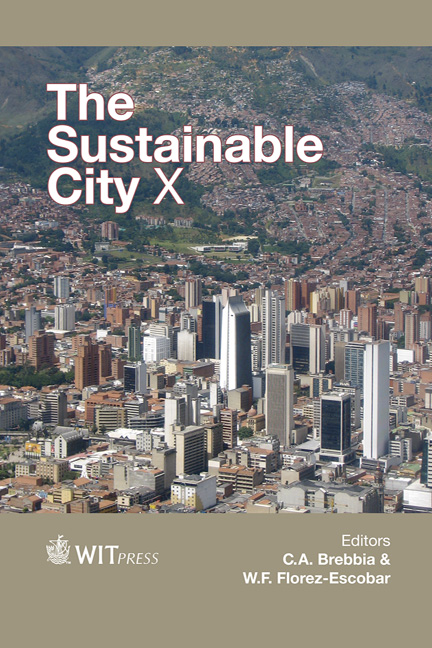Sustainability Assessment Of An Urban Neighbourhood Revitalization Project In Bogotá, By Transposition Of A European Indicator System To The Colombian Context
Price
Free (open access)
Transaction
Volume
194
Pages
14
Page Range
79 - 92
Published
2015
Size
735 kb
Paper DOI
10.2495/SC150081
Copyright
WIT Press
Author(s)
A. V. Cifuentes, S. Lufkin, M. Riera, E. Rey
Abstract
With 80% of its population living in cities, Latin America is one of the most urbanized regions in the planet. Its urban areas are characterized by rapid transformations that entail urban sprawl and its subsequent environmental impacts, social segregation and poverty. Urban revitalization of deteriorated inner-city areas appears as an alternative that seeks to combat these problems and contribute to create more sustainable cities. To support this strategy, it is necessary to develop sustainability assessment methodologies specifically adapted to projects in Latin America. This paper presents the sustainability assessment of the Progresa Fenicia neighbourhood revitalization project, located in Bogotá. The methodology was developed by transposing a European indicator system to the Colombian context. The objective is to support the creation of indicator systems to assess the sustainability of urban revitalization projects at the neighbourhood scale in Colombia. It demonstrates that, to create sustainable neighbourhoods and consequently sustainable cities in a Latin American context, it is not enough to just consider physical and environmental variables related to density, mix land uses and mobility. It is necessary to consider sociocultural, politic and economic issues associated with the guarantee of human rights in the urban context and innovative governance models which prioritize the participation of local community and its empowerment.
Keywords
urban design, urban revitalization, sustainable neighbourhoods, sustainability assessment, indicator system





